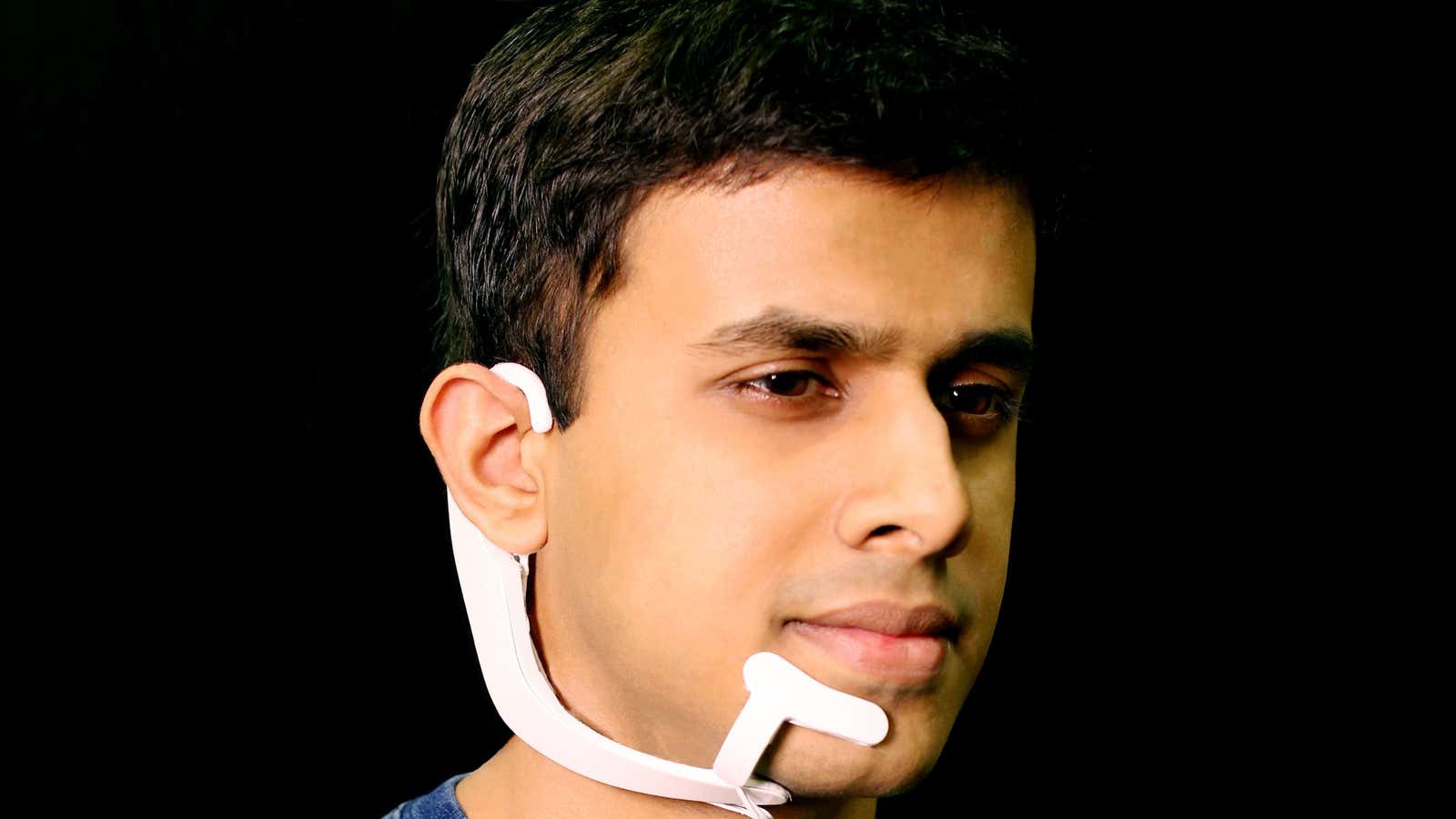A new device, created by mad scientists at MIT, can accept commands that you say only in your own head.
It works by analyzing “subvocalization,” or silent speech. Arnav Kapur, Shreyas Kapur, and Pattie Maes of MIT Media Lab hooked people up to a computer program that identified consistencies in how their brains and faces behaved while thinking certain words to themselves. By carefully placing several electrodes on subjects’ faces, they were able to get the program to consistently distinguish these unspoken words.
From there, the researchers generated lists of instructions—like moving a cursor or doing simple arithmetic—that can be sent to a computer without actually speaking. The device sends responses back to the user, for example telling them what time it is when they ask, by transmitting vibrations through the bones on their face, making headphones unnecessary.
The researchers added to the creepiness by calling this so-called “mind-reading” device “AlterEgo.”
Here’s a quick video of it in action:
The technology is cool, but obviously very preliminary. So we have a few questions about it:
- How many different words can theoretically be expressed using “subvocalization?” Would AlterEgo be able to distinguish accurately with vocabulary lists 100 words long? 1,000? 5,000?
- Is this really a better interface than a smartphone?
- Does it work for the deaf?
- Is there a way to make it look less like you just had dental surgery?
- Can I use this to trick people into thinking I’m really good at mental math?
- Can multiple devices be connected together, allowing me to transmit subvocalized gossip to a friend at a super-loud club?
- Can multiple devices be connected together, allowing people to gossip about me to a friend at a super-loud club?
- Related to the question about the deaf, could it be used to convert to speech the thoughts of people who have lost the ability to speak as the result of an accident or illness?
- Can I use this to trick people into thinking I’m really good at chess?
- Can I use this to trick people into thinking I’m really good at a foreign language I have never studied, by getting it to take my thoughts and transmit the translation through face-bone vibrations?
- Will a private company that acquires this technology be able to passively collect data on my inner monologue?
- Will there be a new genre of stream-of-consciousness fiction that is the result of famous novelists hooking this up to their brain and dumping their thoughts onto a computer?
- Is it possible for this technology to become fast and reliable enough that Googling for some simple fact will not be much different than recalling it from memory?
- Can it please be called something other than “AlterEgo?”
- How can we try this out?
We have put these questions to the researchers, and will update this post with any response.
